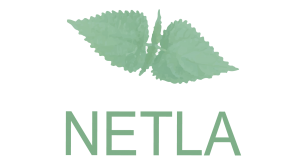The experience of school leaders and quality managers in Icelandic upper-secondary schools in implementing and using TQM
DOI:
https://doi.org/10.24270/netla.2023/12Abstract
Demands for quality and evaluation have increased in the Icelandic school system in the past 30 years. Rules and regulations have been passed that require changes and implementation of new practices. Some of those changes are specific to the school system, such as changes in curriculum and demands for internal and external evaluations of schools. Other general regulations apply to public organisations, such as demands for records management, GDPR compliance, equal pay certification and sustainability practices.
Total Quality Management (TQM) methods are useful in management. They can be used to facilitate v management practices in companies and organisations. TQM methods can be summarised as the continuous process of planning, executing, evaluating/reviewing and improving. Edwards Deming popularised this process which is commonly referred to as the Quality cycle. It has been argued that TQM methods can be useful in school management. Several Icelandic upper-secondary schools already use TQM methods.
This study aims to gain knowledge from school leaders and quality managers who use TQM methods about the implementation process, challenges, useful practices and perceived benefits of using TQM in school management.
Qualitative semi-structured interviews were used to gather data for this study. Eight interviews were conducted. School leaders and quality managers from four upper secondary schools participated in the study. Prospective participants were chosen via purposeful criterion sampling. Websites of all upper-secondary schools in Iceland were studied to look for signs that TQM is used in management. Principals of those schools were contacted and invited to participate in the study. Leaders of four schools agreed to participate. Two participants represented each school, one from top management and the person responsible for implementing or controlling the TQM system. Participants in those two roles were chosen as they can provide an in-depth perspective on the use of TQM systems in the schools.
Thematic analysis was used to detect themes in the data. The transcripts were thoroughly read and reflected on. Complete coding was used, and themes were analysed in light of the purpose of the study and research question.
Our findings show that all of the schools use the main components of the TQM methodology. They are all implementing or using a quality handbook. They all seek feedback and evaluation from students, staff and other stakeholders and study the results to look for improvement opportunities. Only one of the schools is actively working towards having the TQM system certified based on an ISO standard. The others choose methods from TQM on their own terms.
Participants mentioned a few challenges of using a TQM system. Most of them mentioned a lack of resources as a challenge. They discussed the lack of financial resources, time and people with the relevant knowledge. Also, participants talked about the complexity of TQM concepts and ideas. Factors that facilitated success were being proactive in seeking knowledge and support, involvement of top management, having a person responsible for managing the implementation and control of the TQM system and making sure that the quality manager has a good team with whom to work. Participants discussed the importance of trust and unity among those working on the TQM system. Also, they emphasised the importance of engaging and involving staff in discussions about work procedures and the TQM system. All participants claimed that using TQM is beneficial. The main benefits they discussed were clear and instructive work procedures. They mentioned that this was particularly useful for new employees and for tasks that are not performed regularly. Also, they discussed how it makes it easier for someone to step into someone else’s role when needed. Participants discussed how TQM systems help preserve organisational knowledge. Participants also experience increased consistency of work performance when TQM is used due to clear instructions. Participants also said that using TQM methods supports school development and enhances the professionality of employees.
Downloads
Published
Issue
Section
License
Copyright (c) 2023 Anna Jóna Kristjánsdóttir, Börkur Hansen

This work is licensed under a Creative Commons Attribution 4.0 International License.
